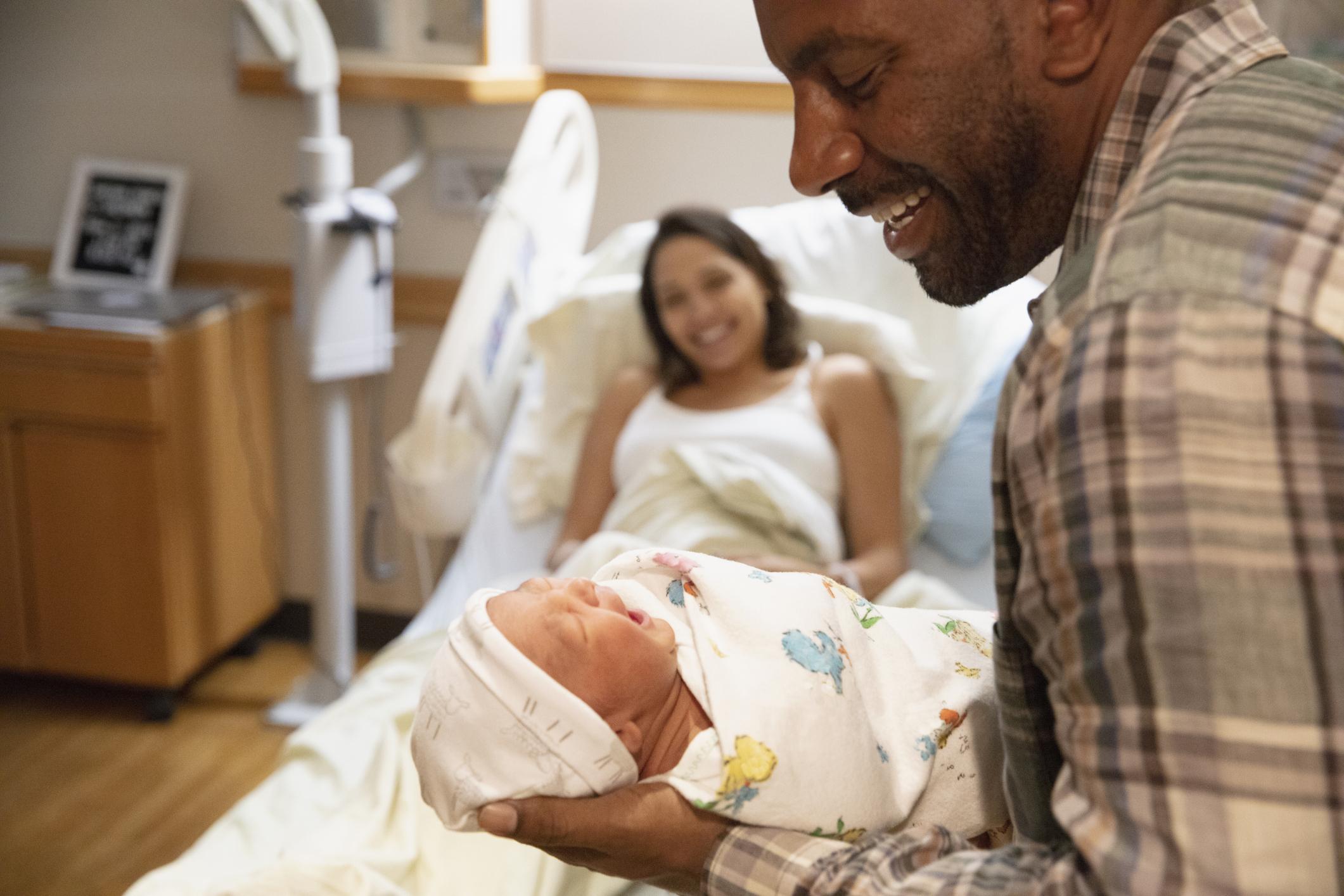- Home
- Health Initiatives
- Pregnant, Parenting, Children, Families And Substance Use Workgroup
- Care At Birthing Hospitals
Care at Birthing Hospitals

Infants who are exposed to substances before they are born sometimes have withdrawal symptoms after birth. Since the 1970s, clinicians would care for infants with withdrawal symptoms by giving them medicine, like morphine. When an infant needed this medication, they were usually taken to the Neonatal Intensive Care Unit (NICU). Transferring a baby to the NICU meant they could not be with their parents, were not held as often, and could not be chest/breastfed. NICUs can also have bright lights and loud noises with many people moving in and out of the area, which can make withdrawal symptoms worse for the baby.
In 2010, Yale New Haven Hospital started a new way of caring for babies who were being monitored or treated for withdrawal. Instead of focusing on withdrawal symptoms, care providers looked to see if the infant was able to eat, sleep, and be consoled. They also changed the way they gave medicine. Instead of giving the baby morphine first, they centered the parents as the most important way to care for their baby. They did not send the baby to the NICU unless there was a medical reason. Instead, they let the baby stay with their parents. They made the room quiet and dim, and when the baby was upset, the parents could feed them, do skin-to-skin, swaddle, sooth, and hold them close.
This new way of taking care of babies, called Eat, Sleep, Console, resulted in significantly fewer infants needing morphine and medications, less time in the hospital, and a better experience for the infants and parents.
To help hospitals adopt the Eat, Sleep, Console model, and provide withdrawal care for the mother or birth parent, the Washington State Hospital Association (WSHA) and the Department of Health (DOH) are offering training and support through a program called the Safe Delivery Roadmap.
In 2021, the Safe Delivery Roadmap program created the Perinatal Substance Use Disorder Learning Collaborative. This collaborative worked with 13 hospitals to pilot the Obstetric Care for Women with Opioid Use Disorder patient safety bundle. In 2022, this bundle was expanded to include training and support for all types of substances, not just opioids.
The Perinatal Substance Use Disorder Learning Collaborative now supports over 80% of birthing hospitals in Washington by providing monthly educational webinars and peer-coaching calls. It also helps hospitals become certified as a Center of Excellence for Perinatal Substance Use. This certificate awards and recognizes hospitals that follow best practices when caring for people and infants impacted by substance use.
Provider Consultation Lines:
- Yes We Can line 833-937-9326 is provided by the Washington Society of Addiction Medicine (WSAM). They answer questions about perinatal substance use, including withdrawal management, initiating and titrating medications for substance use, pain management and whole person health strategies for birthing people, newborns and families. They are open Monday - Friday from 8am - 5pm PST.
- PAL for Moms line 877-725-4666 is provided by the University of Washington. They answer provider questions about maternal mental health and can address substance use questions, but there must be an accompanying mental health diagnosis. It can take up to a business day to get recommendations. They are open Monday - Friday from 9-5.
To Learn More:
- Eat, Sleep, Console Approach or Usual Care for Neonatal Opioid Withdrawal | NEJM has information that is published in the New England Journal of Medicine.
- Alliance for Innovation on Maternal Health (AIM) has quality improvement toolkits for leading causes of maternal mortality, including substance use.
- Perinatal Substance Use Disorder Learning Collaborative offers trainings and guidance in providing care at birth for dyads impacted by substance use.
- Safe Deliveries Roadmap (SDR) program provides best practice guidance from preconception care through postpartum.
- Center of Excellence for Perinatal Substance Use is a certificate that birthing hospitals can qualify for. The certificate program is a partnership between the Department of Health, the Washington State Hospital Association and the Health Care Authority.
